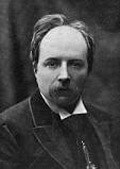the Last Week after Epiphany
Click here to learn more!
Bible Commentaries
El Testamento Griego del Expositor Testamento Griego del Expositor
Nuevo Testamento
Jesus' life, teachings, and fulfillment of Old Testament prophecies as the Messiah. San Marcos
A fast-paced account of Jesus' ministry, focusing on his actions and sacrificial death. San Lucas
Jesus' life, emphasizing compassion for the marginalized and the universal scope of salvation. San Juan
Theological reflections on Jesus as the Word of God, focusing on his divine nature and mission. Hechos
The early church's growth, the apostles' ministry, and the spread of the Gospel. Romanos
A theological treatise on salvation, grace, faith, and righteousness through Jesus Christ for all. 1 Corintios
Paul addresses divisions, immorality, and spiritual gifts in the Corinthian church. 2 Corintios
Paul's defense of his apostleship, his sufferings, and the power of God's grace. Gálatas
Paul's defense of the Gospel of grace against legalism, emphasizing faith in Christ alone. Efesios
Paul's teachings on the church's unity, spiritual blessings in Christ, and Christian conduct. Filipenses
A letter of joy and encouragement, urging humility and faithfulness amid persecution. Colosenses
Paul's emphasis on Christ's supremacy and warnings against false teachings. 1 Tesalonicenses
Encouragement to a young church, with teachings on holiness and Christ's return. 2 Tesalonicenses
Clarifications about Christ's return and exhortations to stand firm in faith. 1 Timoteo
Guidance for church leadership, sound teaching, moral conduct, and defending the truth of the gospel. 2 Timoteo
Paul's final exhortations to Timothy, emphasizing perseverance and faithfulness. Tito
Instructions for establishing order in the church, promoting sound doctrine, and living with integrity. Filemón
A personal appeal for the forgiveness and restoration of a runaway slave, Onesimus. Hebreos
An insightful look at Christ's supremacy, priesthood, and the fulfillment of prophecies. Santiago
Practical wisdom on living out one's faith through good works and righteous behavior. 1 Pedro
Encouragement for suffering Christians to remain faithful and hopeful in their trials. 2 Pedro
A reminder to grow in faith, resist false teachings, and remain steadfast awaiting His return. 1 Juan
Teachings on love, obedience, and assurance of salvation through fellowship with God. 2 Juan
A letter encouraging love, obedience to God's commands, caution against teachings that deny Christ's truth. 3 Juan
A personal letter commending hospitality and warning against arrogance in church leadership. Judas
A strong warning against false teachers and a passionate call to defend the faith and uphold the truth. Apocalipsis
Apocalyptic visions of God's ultimate victory, Christ's return, and the new heaven and earth.
Author's Biography
William Robertson Nicoll fue un influyente ministro de la Iglesia Libre de Escocia, editor y crÃtico literario escocés, nacido el 10 de octubre de 1851 en Lumsden, Aberdeenshire. El legado perdurable de Nicoll está estrechamente ligado a su profundo impacto en los cÃrculos religiosos y literarios a principios del siglo XX. Educado en la Universidad de Aberdeen, fue imbuido con una profunda agudeza académica que definirÃa su carrera posterior. Después de desempeñarse en roles pastorales, su salud lo llevó a cambiar hacia el trabajo literario y editorial, donde sus contribuciones se volvieron monumentales.
Nicoll fundó y editó varias publicaciones significativas, incluyendo "The Expositor" y "The British Weekly", un periódico que rápidamente ganó una amplia audiencia entre la comunidad No conformista en Gran Bretaña. Su destreza editorial era inigualable, combinando profundidad teológica con comentarios accesibles, haciendo discusiones religiosas y morales profundas disponibles para el laico. La capacidad de Nicoll para interactuar e influir en la opinión pública a través de sus editoriales y artÃculos mostraba su agudo entendimiento del espÃritu social y religioso de su tiempo.
Además, Nicoll fue un prolÃfico autor y compilador, dejando un rico legado literario. Su obra más notable incluye la "Biblia del Expositor", una serie completa de comentarios sobre la Biblia escrita por destacados eruditos de la época, que sigue siendo un recurso valioso tanto para teólogos como para lectores laicos. La mano editorial de Nicoll guió la serie, asegurando su accesibilidad y rigor académico.
Más allá de sus contribuciones editoriales y teológicas, Nicoll también fue reconocido por su crÃtica literaria, con un enfoque particular en temas cristianos y teológicos en la literatura. Sus agudas percepciones unieron el abismo entre lo sagrado y lo secular, destacando las dimensiones espirituales en las obras de autores contemporáneos e históricos.
William Robertson Nicoll falleció el 4 de mayo de 1923, pero su legado perdura a través de sus contribuciones a la erudición religiosa, la crÃtica literaria y el periodismo. Su trabajo no solo enriqueció los estudios teológicos, sino que también fomentó una apreciación más profunda de la interacción entre la fe y la cultura entre los lectores de todo el mundo.
